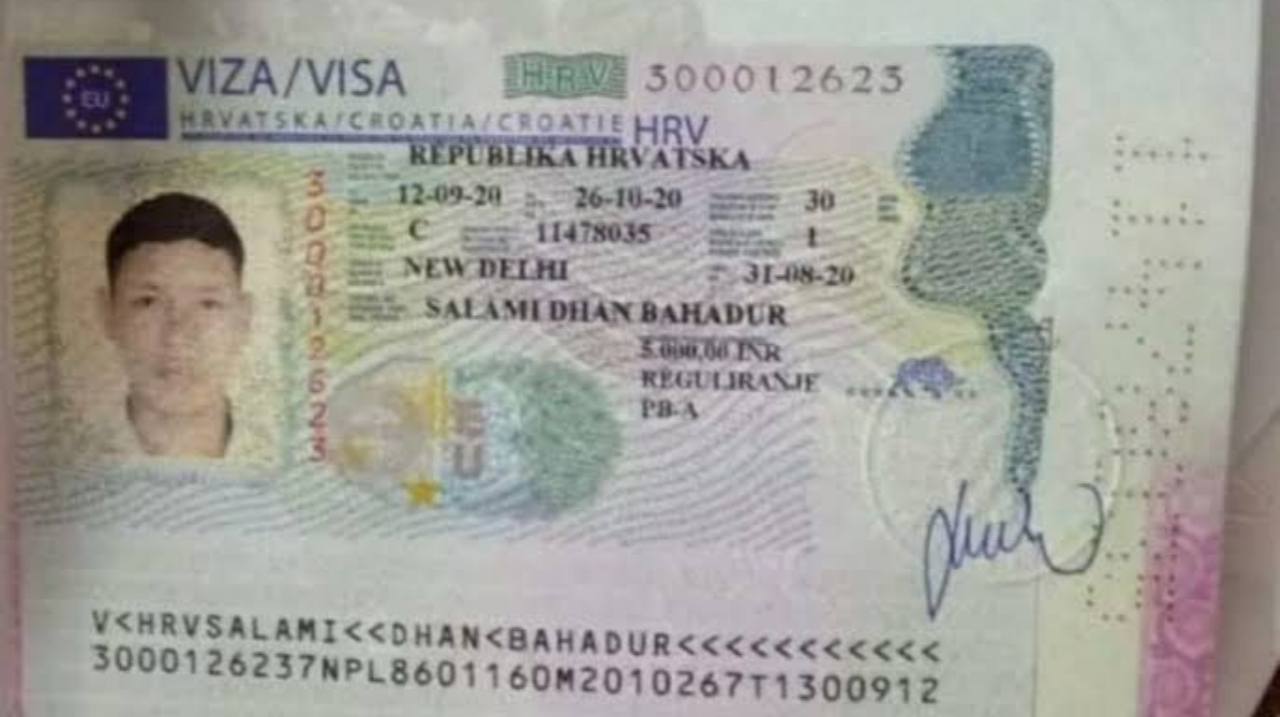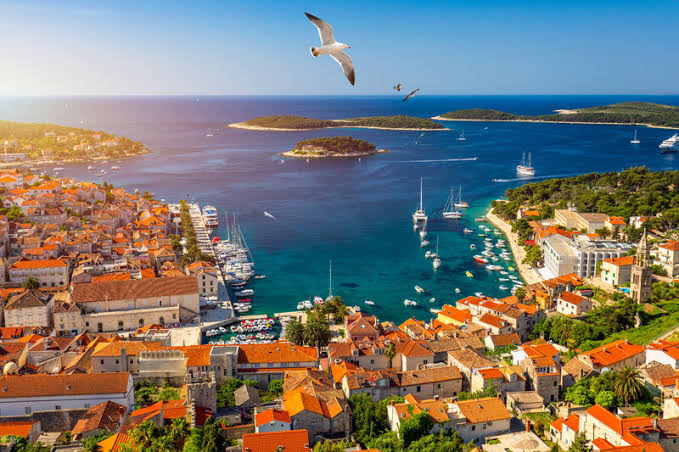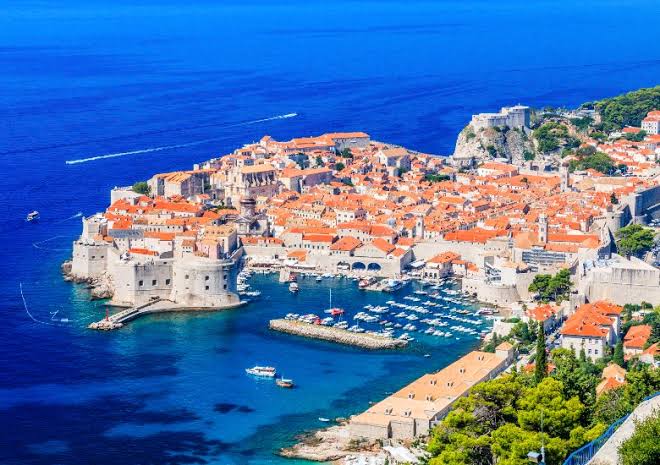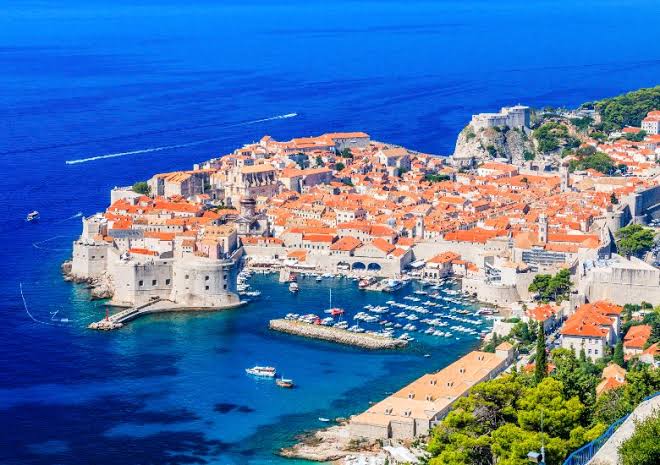Croatia was one of the first european countries who introduce it’s digital nomad visa, it wasn’t named directly digital nomad visa but technically it was designed for digital nomads who work remotely through internet and telecommunication technology.
Croatia introduced digital nomad visa in 2021, the country is now a Schengen member which allow visa free movement in 27 european countries. from 2021 now there are some updates about Croatia digital nomad visa which should be understand.
What’s Croatia digital nomad visa?

Croatia digital nomad visa is a temporary stay visa for digital nomads who work remotely. digital nomads who work remotely for a company registered outside of Croatia or have its own registered company and run it remotely can apply for this visa.
This temporary stay visa maybe granted for a year or even less, most digital nomads grant s one year visa but some also was granted 6 months stay visa, so it’s up on the Croatian authorities that they issue one year or six months visa.
This is temporary stay visa for 6 months or 1 year, after this period digital nomad have to leave the country, unfortunately they can not apply for an extension, Croatia digital nomad visa can’t be extended. this visa is designed maximum for 1 year stay.
This is not mean that digital nomads can stay in Croatia just 6 months or 1 year for thier all career. Actually they need to leave after one year or 6 months, depends on Thier visa duration, they can reapply for a new Croatian digital nomad visa.
A digital nomad need 6 months time to apply again for digital nomad visa, if your visa have ended in Croatia you need to leave the country and wait for 6 months, after 6 months you can apply for a new digital nomad visa.
Croatia digital nomad visa eligibility requirements
To be eligible for Croatia digital nomad visa there Serval requirements, you need to fulfil these requirements without any exception.
Application form: if you are submitting your visa application to Croatia embassy fil and sign form1a. you can also submit your visa application online.
Passport: a copy of your passport is required, your passport should be valid months more than your visa stay in Croatia.
Health insurance: you need a complete health insurance which protects you against all possible risks for your entire stay in Croatia .
Proof of Remote work/ Proof of Purpose: a document which proof you have a remote work is necessary, it can be a work contract, or you ownership of a company located outside of Croatia.
Different documents that prove your remote work status also can be considered such a letter from company that mention your remote work or job.

Income requirement: you will have to present documents such A Bank statement which shows you are recieving regularly payments or payslips of last 6 months or you have a significant amount of funds in your Bank account that can support you during your stay in Croatia.
To be eligible for Croatia digital nomad visa you need to earn monthly minimum 2,870€, you have to prove it, for this you can show bank statement for last 6 months or payslips for last 6 months.
If you want to apply for your family members such spouse or your child you have to earn additional 10% for each of them.
Fortunately Croatia digital nomad visa is designed to help digital nomads and grant them visa, if you don’t have Bank statement you can present Bank balance if you have currently 34,000 euro in Bank account you can apply without Bank statement or bank records.
Police clearance certificate: when you apply for Croatia digital nomad visa you need to present a police clearance certificate, you shouldn’t any criminal history .
Additionally if you lived for a year in another country you need to get a clean criminal record from that country also, you also need a clean criminal record from your home country.
Proof of accomodation: you need to have an address in Croatia, if you are outside of Croatia and it’s first time to applying for Croatian visa you can get a hotel reservation or rental agreement or any similar temporary address.
How to apply for Croatia digital nomad visa?

To apply for Croatia digital nomad visa you need to visit the official website of Croatia online visa.
You need open a new visa application and add the requested information, you also need to upload all the required documents after that you will have to pay visa fee what’s around 73$.
If your visa was approved you can visit the embassy of Croatia, show your Croatia digital nomad visa approval and along with other documents and submit it for a visa.
A short stay visa will granted to you, this visa will allow you to enter Croatia and than apply there for Residence Permit.
Croatia digital nomad visa alternatives
Croatia is a great option but if if don’t suit for you here a few alternatives that you can consider:
Portugal
Portugal’s D7 visa is a popular choice among digital nomads and remote workers. This visa is intended for those who can demonstrate a stable passive income or earnings from remote work.
The D7 visa allows for residence in Portugal for an initial period of one year, renewable for two-year periods subsequently. Portugal offers a high quality of life, relatively low cost of living, and excellent infrastructure, making it an attractive destination for remote workers.

The vibrant cities, beautiful coastal towns, and rich cultural heritage add to its appeal. Additionally, Portugal is part of the Schengen Area, granting visa holders easy travel access to other European countries.
Estonia
Estonia was one of the first countries to offer a digital nomad visa, reflecting its forward-thinking stance on digital innovation.
The Estonian Digital Nomad Visa allows remote workers to live in the country for up to one year while working for a foreign employer or as a freelancer.
Read more: Romania digital nomad visa guide
Estonia boasts a highly digital society, with many government services available online, and a robust tech infrastructure. Its capital, Tallinn, is known for its charming medieval architecture, dynamic startup scene, and affordable living costs.
Estonia’s commitment to digital innovation and e-residency programs further strengthens its position as a prime destination for digital nomads.
Georgia
Georgia’s “Remotely from Georgia” program is designed to attract remote workers to the country.
This program permits stays of up to one year for digital nomads who can demonstrate the ability to sustain themselves financially while living in Georgia.
The country’s low cost of living, stunning natural landscapes, and welcoming culture make it a highly appealing option.
Tbilisi, the capital, offers a blend of old-world charm and modern amenities, with a burgeoning expat community and co-working spaces. Additionally, Georgia’s straightforward application process and visa-free access for many nationalities simplify the transition for remote workers.
Mexico
Mexico offers the Temporary Resident Visa, which is suitable for digital nomads and remote workers planning to stay for more than six months but less than four years.
The visa requires proof of sufficient income or savings, and it provides a pathway to temporary residency. Mexico’s diverse culture, rich history, and varied landscapes—from beaches to mountains—make it an attractive destination.
Cities like Mexico City, Playa del Carmen, and Guadalajara are popular among digital nomads for their vibrant communities, affordable living costs, and excellent connectivity.